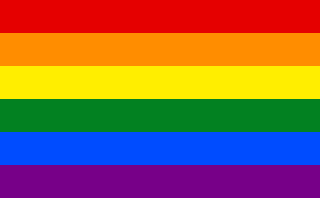
Arabic is a Semitic language that first emerged in the 1st to 4th centuries CE. It is now the lingua franca of the Arab world. It is named after the Arabs, a term initially used to describe peoples living in the area bounded by Mesopotamia in the east and the Anti-Lebanon mountains in the west, in Northwestern Arabia and in the Sinai Peninsula. The ISO assigns language codes to thirty varieties of Arabic, including its standard form, Modern Standard Arabic, also referred to as Literary Arabic, which is modernized Classical Arabic. This distinction exists primarily among Western linguists; Arabic speakers themselves generally do not distinguish between Modern Standard Arabic and Classical Arabic, but rather refer to both as al-ʿarabiyyatu l-fuṣḥā or simply al-fuṣḥā (اَلْفُصْحَىٰ). Modern Standard Arabic is an official language of 26 states and 1 disputed territory, the third most after English and French

Birds are a group of warm-blooded vertebrates constituting the class Aves, characterised by feathers, toothless beaked jaws, the laying of hard-shelled eggs, a high metabolic rate, a four-chambered heart, and a strong yet lightweight skeleton. Birds live worldwide and range in size from the 5.5 cm (2.2 in) bee hummingbird to the 2.8 m ostrich. There are about ten thousand living species, more than half of which are passerine, or "perching" birds. Birds have wings whose development varies according to species; the only known groups without wings are the extinct moa and elephant birds. Wings, which evolved from forelimbs, gave birds the ability to fly, although further evolution has led to the loss of flight in some birds, including ratites, penguins, and diverse endemic island species. The digestive and respiratory systems of birds are also uniquely adapted for flight. Some bird species of aquatic environments, particularly seabirds and some waterbirds, have further evolved for swimming.

Grigori Yefimovich Rasputin was a Russian mystic and self-proclaimed holy man who befriended the family of Nicholas II, the last emperor of Russia, and gained considerable influence in late imperial Russia.

Human sexual activity, human sexual practice or human sexual behaviour is the manner in which humans experience and express their sexuality. People engage in a variety of sexual acts, ranging from activities done alone to acts with another person in varying patterns of frequency, for a wide variety of reasons. Sexual activity usually results in sexual arousal and physiological changes in the aroused person, some of which are pronounced while others are more subtle. Sexual activity may also include conduct and activities which are intended to arouse the sexual interest of another or enhance the sex life of another, such as strategies to find or attract partners, or personal interactions between individuals. Sexual activity may follow sexual arousal.

Mammals are a group of vertebrate animals constituting the class Mammalia, and characterized by the presence of mammary glands which in females produce milk for feeding (nursing) their young, a neocortex, fur or hair, and three middle ear bones. These characteristics distinguish them from reptiles and birds, from which they diverged in the Carboniferous, over 300 million years ago. Around 6,400 extant species of mammals have been described. The largest orders are the rodents, bats and Eulipotyphla. The next three are the Primates, the Artiodactyla, and the Carnivora.

Music is the art of arranging sounds in time to produce a composition through the elements of melody, harmony, rhythm, and timbre. It is one of the cultural universal aspects of all human societies. General definitions of music include common elements such as pitch, rhythm, dynamics, and the sonic qualities of timbre and texture. Different styles or types of music may emphasize, de-emphasize or omit some of these elements. Music is performed with a vast range of instruments and vocal techniques ranging from singing to rapping; there are solely instrumental pieces, solely vocal pieces and pieces that combine singing and instruments. The word derives from Greek μουσική . See glossary of musical terminology.

Northern Ireland is variously described as a country, province, or region which is part of the United Kingdom. Located in the northeast of the island of Ireland, Northern Ireland shares a border to the south and west with the Republic of Ireland. In 2011, its population was 1,810,863, constituting about 30% of the island's population and about 3% of the UK's population. The Northern Ireland Assembly, established by the Northern Ireland Act 1998, holds responsibility for a range of devolved policy matters, while other areas are reserved for the British government. Northern Ireland co-operates with the Republic of Ireland in several areas.

A regular expression is a sequence of characters that define a search pattern. Usually such patterns are used by string-searching algorithms for "find" or "find and replace" operations on strings, or for input validation. It is a technique developed in theoretical computer science and formal language theory.

Organisms of many species are specialized into male and female varieties, each known as a sex. Sexual reproduction involves the combining and mixing of genetic traits: specialized cells known as gametes combine to form offspring that inherit traits from each parent. The gametes produced by an organism define its sex: males produce small gametes while females produce large gametes. Individual organisms which produce both male and female gametes are termed hermaphroditic. Gametes can be identical in form and function, but, in many cases, an asymmetry has evolved such that two different types of gametes (heterogametes) exist.

A wiki is a hypertext publication collaboratively edited and managed by its own audience directly using a web browser. A typical wiki contains multiple pages for the subjects or scope of the project and could be either open to the public or limited to use within an organization for maintaining its internal knowledge base.

LGBT or GLBT, is an initialism that stands for lesbian, gay, bisexual, and transgender. In use since the 1990s, the term is an adaptation of the initialism LGB, which began to replace the term gay in reference to the broader LGBT community beginning in the mid-to-late 1980s. The initialism, as well as some of its common variants, functions as an umbrella term for sexuality and gender identity.

In some cultures, a surname, family name, or last name is the portion of one's personal name that indicates their family, tribe or community.

In computer networking, a proxy server is a server application or appliance that acts as an intermediary for requests from clients seeking resources from servers that provide those resources. A proxy server thus functions on behalf of the client when requesting service, potentially masking the true origin of the request to the resource server.

An IATA airport code, also known as an IATA location identifier, IATA station code, or simply a location identifier, is a three-letter geocode designating many airports and metropolitan areas around the world, defined by the International Air Transport Association (IATA). The characters prominently displayed on baggage tags attached at airport check-in desks are an example of a way these codes are used.
Bachelor of Arts is the holder of a bachelor's degree awarded for an undergraduate program in the arts and sciences. A Bachelor of Arts degree course is generally completed in three or four years, depending on the country and institution.
A bachelor's degree or baccalaureate is an undergraduate academic degree awarded by colleges and universities upon completion of a course of study lasting three to seven years. The two most common bachelor's degrees are the Bachelor of Arts (BA) and the Bachelor of Science. In some institutions and educational systems, some bachelor's degrees can only be taken as graduate or postgraduate degrees after a first degree has been completed. In countries with qualifications frameworks, bachelor's degrees are normally one of the major levels in the framework, although some qualifications titled bachelor's degrees may be at other levels and some qualifications with non-bachelor's titles may be classified as bachelor's degrees.

A bar is a long raised narrow table or bench designed for dispensing beer or other alcoholic drinks. They were originally chest high, and a bar, often brass, ran the length of the table, just above floor height, for customers to rest a foot on, which gave the table its name. Over many years, heights of bars were lowered, and high stools added, and the brass bar remains today. The name bar became identified with the business, is a retail business establishment that serves alcoholic beverages, such as beer, wine, liquor, cocktails, and other beverages such as mineral water and soft drinks. Bars often also sell snack foods such as crisps or peanuts, for consumption on their premises. Some types of bars, such as pubs, may also serve food from a restaurant menu. The term "bar" also refers to the countertop and area where drinks are served. The term "bar" derives from the metal or wooden bar (barrier) that is often located along the length of the "bar".

Quakers, also called Friends, belong to a historically Christian (Protestant) denomination known formally as the Religious Society of Friends. Members of the various Quaker movements are all generally united by their belief in the ability of each human being to experientially access the light within, or "that of God in every one".

A computer is a machine that can be instructed to carry out sequences of arithmetic or logical operations automatically via computer programming. Modern computers have the ability to follow generalized sets of operations, called programs. These programs enable computers to perform an extremely wide range of tasks. A "complete" computer including the hardware, the operating system, and peripheral equipment required and used for "full" operation can be referred to as a computer system. This term may as well be used for a group of computers that are connected and work together, in particular a computer network or computer cluster.

A continent is one of several large landmasses. Generally identified by convention rather than any strict criteria, up to seven regions are commonly regarded as continents. Ordered from largest in area to smallest, these seven regions are: Asia, Africa, North America, South America, Antarctica, Europe, and Australia. Variations with fewer continents may merge some of these, for example some systems include Eurasia or America as single continents.


















